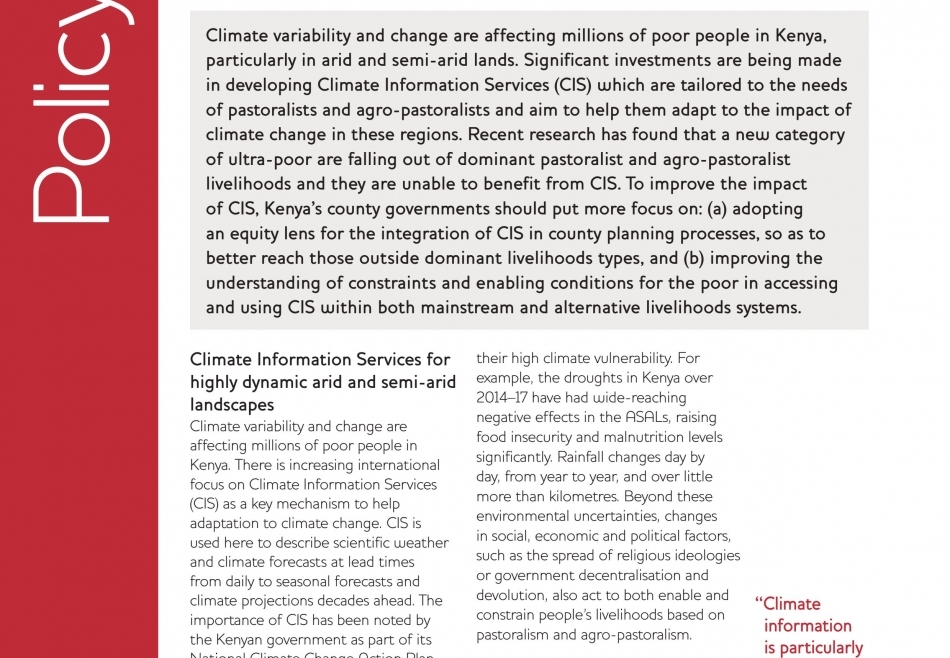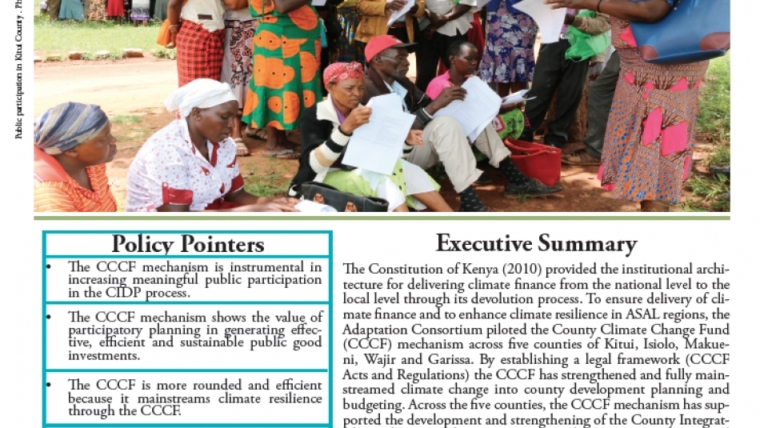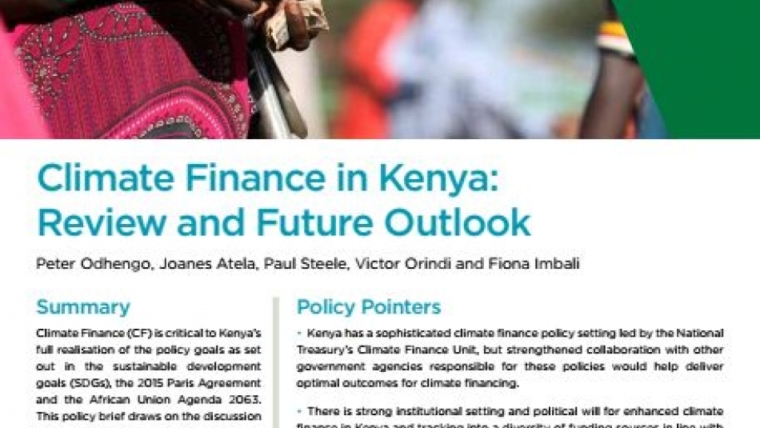Climate variability and change are affecting millions of poor people in Kenya, particularly in arid and semi-arid lands. Significant investments are being made in developing Climate Information Services (CIS) which are tailored to the needs of pastoralists and agro-pastoralists and aim to help them adapt to the impact of climate change in these regions. Recent research has found that a new category of ultra-poor are falling out of dominant pastoralist and agro-pastoralist livelihoods and they are unable to beneft from CIS. To improve the impact of CIS, Kenya’s county governments should put more focus on: (a) adopting an equity lens for the integration of CIS in county planning processes, so as to better reach those outside dominant livelihoods types, and (b) improving the understanding of constraints and enabling conditions for the poor in accessing and using CIS within both mainstream and alternative livelihoods systems.



